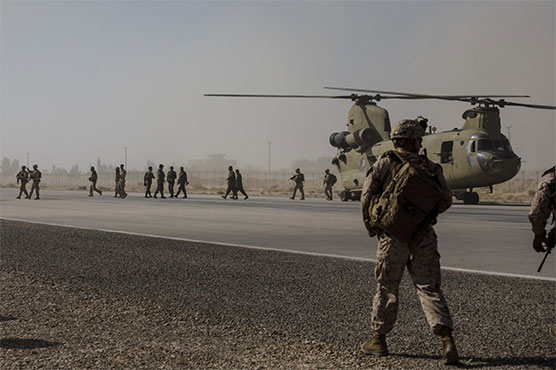US wants to reposition forces to Afghanistan region

The US plans talks to reposition some of its forces in neighbors of Afghanistan.
WASHINGTON (AFP) - The US plans talks to reposition some of its forces in neighbors of Afghanistan after it withdraws from the country, Washington s military commander for the region said Tuesday.
"We are further planning now for continuing counterterrorism operations within the region, ensuring that the violent extremist organizations fighting for their existence in the hinterlands of Afghanistan remain under persistent surveillance and pressure," Central Command chief Kenneth McKenzie told a hearing in Congress.
President Joe Biden has pledged to remove the last American troops from Afghanistan -- a force currently made up of around 2,500 personnel -- within six months, aiming to end US involvement in the country two decades after invading in the wake of the September 11, 2001 attacks.
But the US-led coalition in Afghanistan fears that once they have left, extremist groups operating inside Afghanistan like Al-Qaeda and the Islamic State group could enjoy a resurgence that a weakened Afghan government would not be able to stop.
McKenzie said the Pentagon is studying its options to continue surveilling and potentially attacking those groups from neighboring countries.
"If you leave Afghanistan and you want to go back in to conduct these kinds of operations, there are three things you need to do: you need to find the target, you need to fix the target and you need to be able to finish the target," he told the hearing.
All three require heavy intelligence support, he said, making it harder from outside Afghanistan, but "not impossible."
McKenzie did not name any of the countries under consideration.
"We will look at all the countries in the region, our diplomats will reach out and we ll talk about places where we can base" US resources, McKenzie told the House Armed Services Committee.
"Some of them may be very far away, and then we will get a significant bill for those types of resources because you d have to cycle a lot of them in and out," he warned.
"At this time, we have none of those agreements in place," he added.

